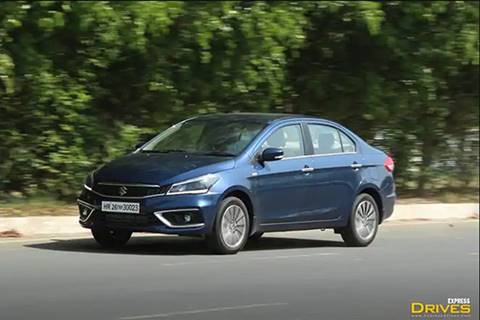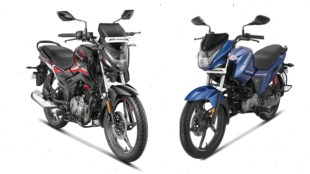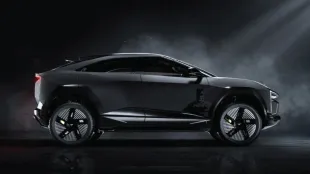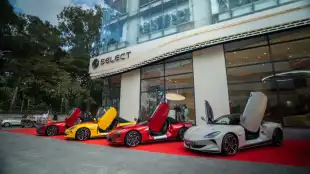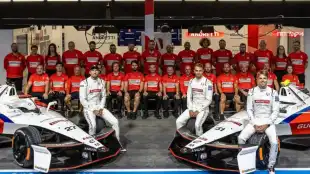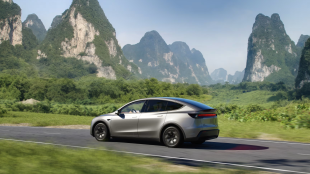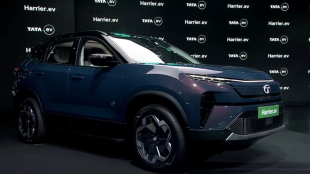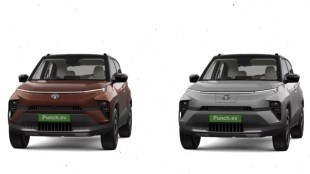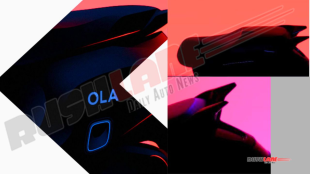
Air pollution has become one of the largest concerns the world is dealing with, especially India which happens to have some of the cities with the worst air pollution in the world. This has led to the global automotive industry to scramble to develop vehicles that can run on alternative fuel and improve the existing ICE (internal combustion engine) to produce lesser emissions. India too is set to raise its standards when it comes to automobile emissions – leaping from the existing BS-IV norms to BS-VI starting 1st April 2020.
Some of the largest car manufacturers are currently in the process of making a smooth transition from BS-IV to VI, while some have already launched updated models. Maruti Suzuki recently launched the BS-VI compliant models of Baleno and Alto. The manufacturer shared with us its initiatives towards a greener future of mobility and the environment.
1. Launch of BS-VI compliant cars: Petrol BSVI vehicles emit 25% lower NOx – a major contributor to air pollution. The manufacturer plans to progressively upgrade its entire product range (excluding diesel) to BS-VI well in time.
2. National energy security and emission goals: Maruti Suzuki believes that aligning with the government’s energy security and emission goals requires multiple technologies, fuels, and powertrains. With this belief, Maruti has been working on offering customers a choice of fuel options like CNG and Smart Hybrid vehicles. Maruti Suzuki was the first in India to introduce factory-fitted CNG cars in 2010. Today it offers seven CNG models – Alto 800, Alto K10, WagonR, Celerio, Dzire, Eeco, and Super Carry.
3. Lowering of greenhouse gases: Maruti Suzuki has captive power plants at Manesar and Gurgaon. Approximately 95% of the total electricity consumed by the company is generated in-house through natural gas (cleaner fuel) based captive power plants. Remaining 5% is from solar and power grid. Use of natural gas for generation of electricity has helped in reducing the CO2 emission by almost 50% compared to a thermal power plant where coal is used.
The solar power plant of 1 MW capacity, commissioned in 2013-14 at Manesar facility generated 1,319 MWh of electricity in 2014-15. This has reduced emission by 1,014 t of CO2 equivalent. The same has now been expanded to 1.3 MW capacity. In May 2019, the Company started work to set up a new 5 MW Solar Power Plant at its Gurugram facility.
Other initiatives include the use of energy efficient LED lighting in Gurgaon, Manesar and R&D Centre at Rohtak. The Manesar B plant commissioned in September 2011 is the first car plant in India that is 100 percent LED and is significantly more energy efficient than any of the other plants, including the Manesar A plant commissioned in February 2006.
In the FY’19, the Company implemented several kaizens in its manufacturing facilities leading to reduction of 4,932 tonnes of CO2. With respect to green area enhancement, the Company planted more than 2,000 trees in Gurgaon, Manesar, and Rohtak.
MSIL is committed to eliminating all use of ozone-depleting substances (ODS) at the manufacturing facilities. The Company is gradually reducing its inventory of R-22 refrigerant, which is currently contained in condensers, chillers and air-conditioning units and intends to procure equipment with only non-ODS refrigerants. During FY 18-19, there was a reduction of 85 tons in total ODS inventory as compared to the previous year.
4. Improvement in fuel efficiency key to lowering CO2 emissions: Maruti Suzuki cars are amongst most fuel-efficient cars in the market today and hence, their emissions are the least too. With focused efforts, Maruti Suzuki has been successful in bringing down the weighted average CO2 emission by over 11.6% in the last five years. Introduction of HEARTECT platform and innovative ideas to improve FE have helped us to achieve over 9% CO2 emission benefit in new Ertiga (P), over 8% & 20% in new WagonR (P & CNG) and around 4% in new Ciaz (P) with respect to their outgoing versions.
5. Future Mobility: Maruti Suzuki is committed to launching Electric vehicle in India. The Company is road testing 50 EV prototypes to suit the Indian driving conditions. 50 Electric Vehicles prototypes have been developed exclusively by Suzuki Motor Corporation, Japan and built at Maruti Suzuki, Gurugram facility, as our commitment to Make in India.
This extensive real-life usage of the vehicles in multiple terrains and climatic conditions will help the company get valuable insights that will help in validation and successful launch of Electric Vehicle technology in India.
Testing of these vehicles will also help Maruti Suzuki to gather critical inputs based on customer perspectives and real-life usage. This will help to create a reliable and suitable Electric Vehicle to delight Indian customers.
Now get your Maruti Suzuki car serviced at night with company’s Night Service
6. Green Logistics: The use of railways for transporting finished cars is another eco-friendly initiative that makes us proud. In the last five years, around 5 lakh cars have been transported all over the country through rail mode offsetting over 4000 tonnes of CO2 emissions. The company is now using around 30 rakes for transportation of its cars, of which more than half include flexi-deck auto-wagon rake, specially designed by the company.
7. End of Life Vehicles: Maruti Suzuki was one of the first companies to manufacture ELV compliant cars, much ahead of the regulations being implemented in India. A-star, the first ELV compliant car, was manufactured in 2008, later it Taking forward the initiative the Company recently implemented globally acclaimed International Material Data System (IMDS), to meet international norms and quantify recoverable and recyclable materials in its vehicles. Maruti Suzuki WagonR is the first vehicle to comply with IMDS and the Company plans to progressively implement IMDS in all future models. Simply put, WagonR and all upcoming models would be minimum 95% recoverable and 85% recyclable, ahead of regulations in India.
